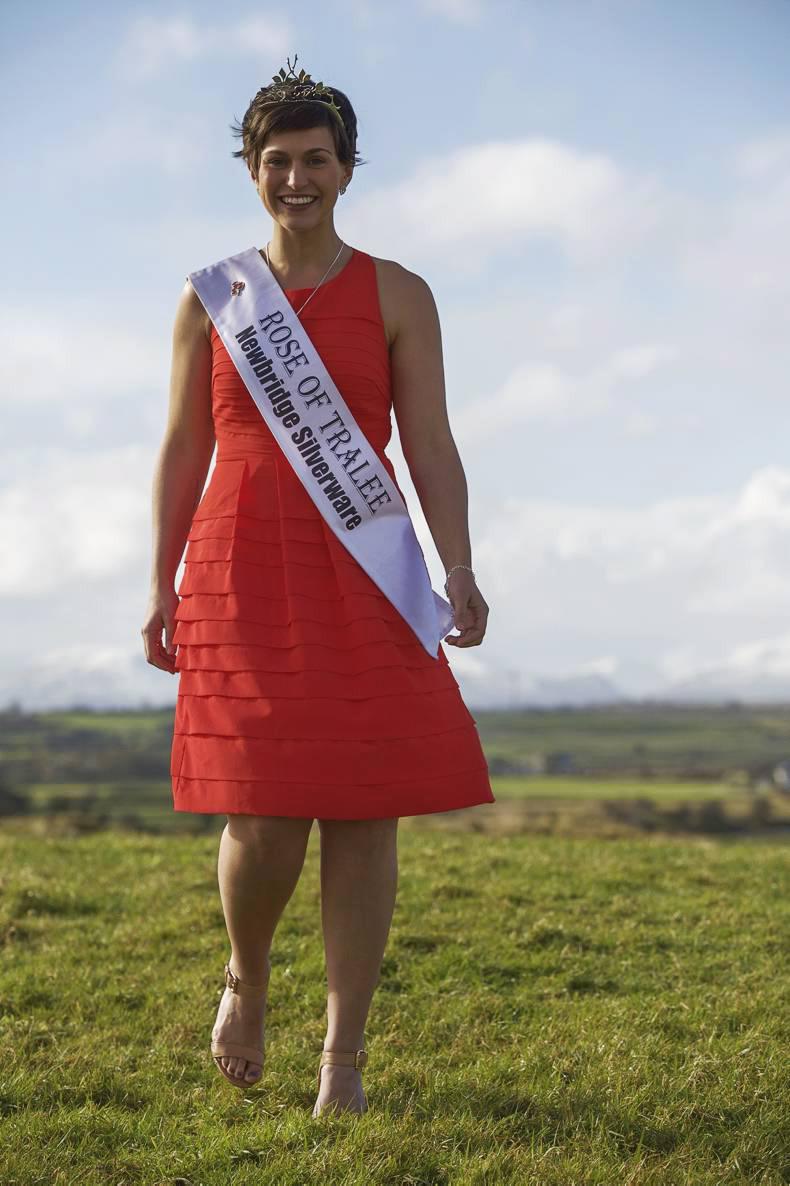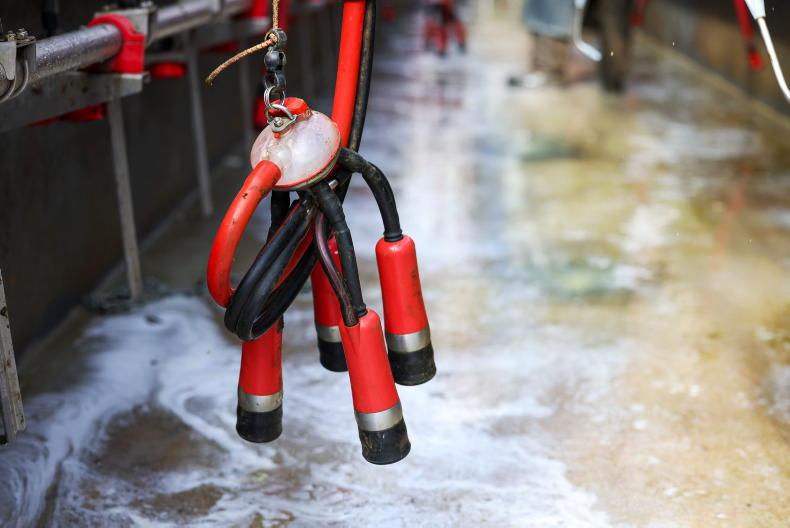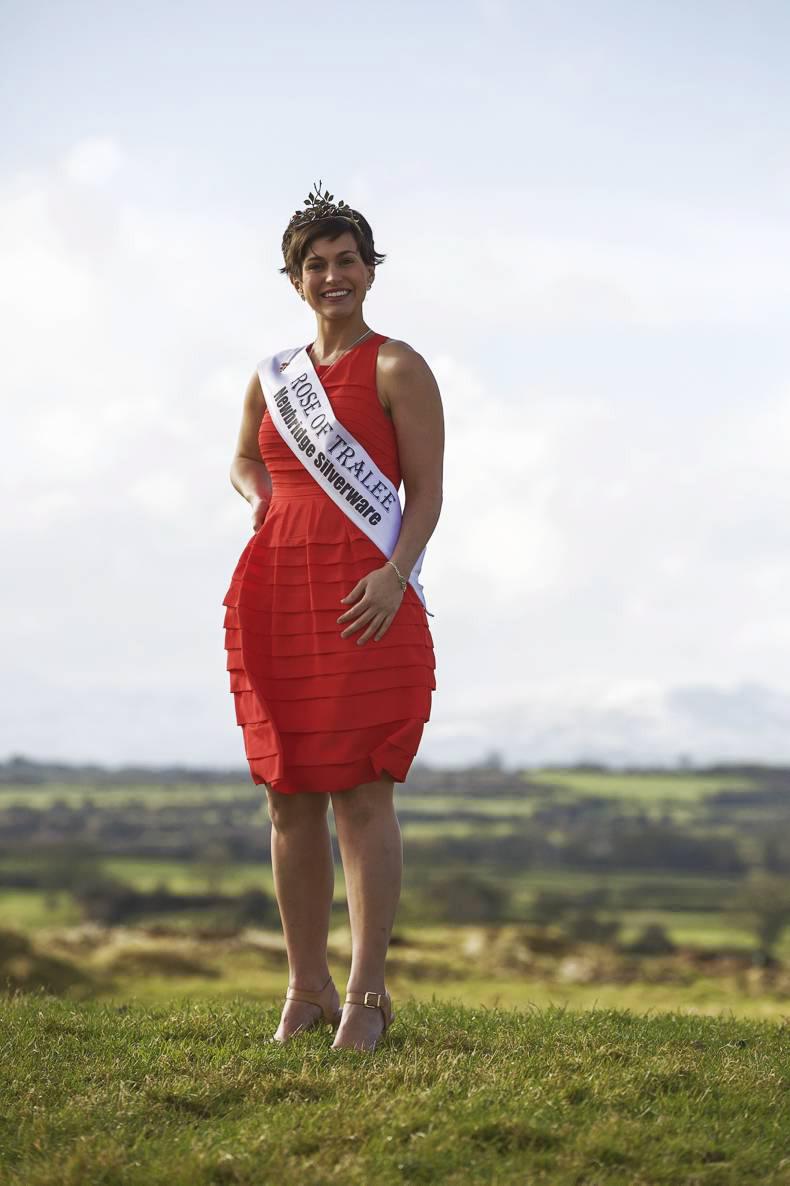"Maria’s never been afraid of anything.”
Says her younger brother, Mikey, as he refills the kettle – there has been a continuous supply of tea, coffee, sausage sandwiches and good-natured slagging since Irish Country Living arrived at the Rose of Tralee’s family farmhouse.
(And a thick stack of Farmers Journals in the corner, which we are assured that her father, Vincent, refuses to part with. Keep fighting the good fight, Vincent.)
But back to the topic at hand. Maria is telling the story of how she decided at 12 that she would be a pioneer for life.
She even refused to sign her confirmation pledge certificate unless it explicitly stated her commitment, rather than just abstain from alcohol until 18.
“I was told: ‘You have to fill out the certificate or you won’t be confirmed’,” she recalls. “And I said: ‘I’ll explain to the bishop why I’m not being confirmed then’.”
That ended that. Though you can almost imagine her marching up the church for a tête-à-tête with His Grace.
But what seems extraordinary is not her decision – her mother, Noreen, is a pioneer, as are several aunts – but the confidence to be herself, even then.
“People used to say to me: ‘What did you feed your children?’” smiles Noreen.
It’s that same self-assurance that saw the 27-year-old enthral the nation when she took to the stage as the Philadelphia Rose – even the nay-saysers on Twitter were silenced – and ultimately win the title of Rose of Tralee; a role she has made her own, and perhaps even reinvented, just by being true to who she is.
“Short hair, tattoos, lesbian and a pioneer. Sure we may as well have it all in one,” she says wryly at one stage.
It quickly becomes clear that while Maria takes her role as Rose seriously, that doesn’t always include herself and it doesn’t take long to feel at home in Shrule, Co Mayo, where her family has lived and farmed since 1994.
Vincent left Ireland in 1973 to work as a carpenter outside Boston, where he met Noreen. All four children – Kevin, Eileen, Maria and Mikey – were born in the States, but in the late 1980s, Vincent gave his brother money to put a deposit on 20 acres should something suitable come on the market at home.
“Two years later he called me and said: ‘I stuck a deposit on 60 acres there for you’,” recalls Vincent. “I said: ‘What in the name of God will we do with 60 acres?’ When I came here, there wasn’t a wall up.”
While the main family business is auctioneering, the beef and sheep farm was an essential part of Maria’s upbringing. She learned to drive on a Massey 690, earned her first pay helping out at Headford mart and was involved in all aspects of farm life, if not always by choice.
“Dad refused to get a sheepdog for many years because he had four children,” laughs Maria.
With her outgoing personality, it’s little surprise Maria studied journalism and visual media and worked as a production assistant throughout college on TV shows like Deal or No Deal and The Apprentice.
Two weeks after graduating, however, her cousin, Teresa Molloy (19), was one of four young women killed in a car crash while Christmas shopping. Before the accident, Maria had been planning to move to New York and almost decided not to go. However, she realised that would be a disservice to Teresa’s memory.
“It’s how you utilise that loss and just absorb every opportunity that comes in honour of her,” she explains of how she coped with her grief. “Instead of just waiting to see what happens, I think you just need to grab it by both hands.”
Just days after landing in New York, she got her famous ladybird tattoo in Teresa’s honour. It’s that spirit of seizing every opportunity that saw Maria enter the Rose selection, not once, but twice.
In 2012, she had moved to Philadelphia to work as a studio manager with fashion brand Anthropologie and entered the local Rose selection to meet new people and tick it off “the bucket list”. That year, Elizabeth Spellman (now a close friend) won.
“I came away thinking what a fantastic experience. I met five new friends and I now know people within the Irish community,” says Maria.
So when the Rose centre asked if she would return for the 2014 selection, she initially hesitated, before deciding to give it another shot.
“I only tell that story because I think it’s so important for young people, particularly because the age demographic for Rose of Tralee is 18 to 27,” she says.
“From 18 to 27 I think you’re constantly growing and I think it’s so important to just highlight that if it doesn’t work out for you the first year, the opportunity is still going to be there the next year and the next year.
“I didn’t want to get to 27 and say: ‘I wish I’d done that’ and regret anything.”
Having expectations of nothing more than a good night and meeting new friends, Maria only told her mother she might enter and went to the selection on her own.
“And when they called: ‘Maria Walsh’, I said: ‘I’m going to be in so much trouble’,” she squirms, adding that her older brother Kevin was “irate” she hadn’t told them.
“I remember him saying: ‘Maria, what if you win the Rose of Tralee and this is the part of your story that nobody was with you the night it all started?’” she recalls. “And I go: ‘Kevin, please. It won’t happen.”
Fast-forward to August, of course, and Maria was named 2014 Rose of Tralee (the first thing she said to her father was: “I see 60 acres, all mine.”)
A few days later, however, she made headlines for a second time after The Sun ran a story that she had come out as a member of the LGBT community two years previously.
She had agreed to the interview on condition that it recognised the many values she identified with, not just that she is gay.
“I would introduce myself as a pioneer ever before I would introduce myself as being gay,” she explains. “Not that I’m any bit ashamed, it’s just that being gay is just a part of me.”
She says she expected some negativity, but the reaction has been overwhelmingly positive. At the Ploughing Championships, for example, many older people approached her to congratulate her.
“‘Not just because you’re the Rose, but that ‘other thing’,” she repeats with a smile. “And I said: ‘You know what? We’re not as far behind in the times as what people in the media say we are’.”
Maria hopes that if even “one person, young or old, feels a little bit more comfortable in their own skin, perhaps because of how I handle it”, her reign as Rose will have made a difference. For anybody struggling with their sexuality, her advice is life “is too short not to be who you are”.
“Each of us has very different stories of how we came out and once you find that moment when you feel most comfortable in your own skin, you will do it. I think you just have to be respectful for those around you and, most importantly, yourself,” she says, crediting her family for their support.
“I have friends who have been in relationships for many, many years with their significant other and they just haven’t reached the point where they’re coming out. But for me, it was so important to tell my parents because I was in a relationship and I didn’t want to hide that and that was such a big aspect of who I was.
“And just to be honest ... once it’s out, the weight is off your shoulder and you can just carry on doing what you need to do.”
Which, in Maria’s case, is showcasing the fact that the Rose of Tralee is not a two-night TV extravaganza, but a year-long ambassador role. Still living and working in Philadelphia (her employers are completely supportive), her schedule looks exhausting. When we meet, she’s barely back from Belarus and is due to make two further trips to Ireland – including Dublin airport for just one day – before the month is out.
“If you don’t allow your body to know what time zone you are in, it works out,” she laughs.
Highlights have included being presented with the Mayo jersey in Croke Park, a 32-tour county tour in 15 days and trips to Calcutta with the Hope Foundation and to South Africa with Mellon Educate.
With her sass and smarts, she seems to have come as a breath of fresh air to the festival. Somebody recently told her that applicants to the Limerick selection had doubled this year, including a number of girls with tattoos. Has she opened the competition up to women who previously may have written it off?
“I have to say that the festival has always been open (to whatever female wants to enter), whether it’s been showcased or not in that light,” she responds. “But I think our own perceptions of the Rose of Tralee certainly have shifted because I was selected.”
As for life once she hands over her tiara, Maria is not sure what’s next, though an eventual return to Ireland is on the cards.
“I think wherever my folks are, that’s home,” she says, adding, “The Farmers Journal might hire me after this interview.”
We doubt she’ll be short of offers. And the legacy she hopes to leave as Rose?
“I guess that being yourself is the best form you can be,” she says simply.
But even at 12, Maria Walsh could have told you that.
Visit www.roseoftralee.ie.














SHARING OPTIONS